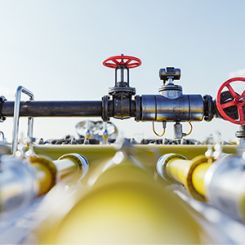Torrential rain left 2 million gallons of water on the field, delaying a game
Pumps & Systems
12/07/2017
Heavy rainfall and flooding delayed Western Michigan University’s homecoming game against Akron, but an all-night effort to pump nearly 2 million gallons out of Waldo Stadium kept the game on track. The game was scheduled for Saturday, Oct. 14, but torrential rain pounded the city of Kalamazoo, Michigan that afternoon. The 78-year-old stadium is in a flood plain and has three pumps that eject water to a 60-inch concrete pipe that Arcadia Creek flows through. There were several catch basin inlets by the stadium that also drained to the 60-inch stormwater line. The line was at capacity, so stormwater moved backward and pushed water back around the stadium, contributing to the field flooding.
.jpg) Western Michigan University's Waldo Stadium is flooded, delaying a college football game by a day (Images courtesy WMU)
Western Michigan University's Waldo Stadium is flooded, delaying a college football game by a day (Images courtesy WMU) Western Michigan University's Waldo Stadium is cleared and WMU is able to play football.
Western Michigan University's Waldo Stadium is cleared and WMU is able to play football.
